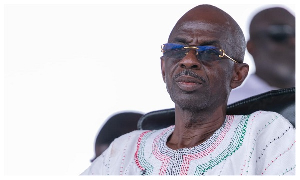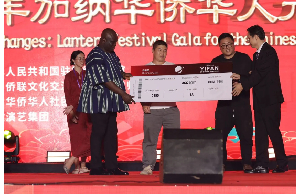Science, technology and innovation will be at the heart of Africa’s recovery from the devastating coronavirus (COVID-19) pandemic and the continent’s ability to create sustainable jobs, Executive Secretary of the Economic Commission for Africa (ECA), Vera Songwe, has said.
In remarks at the beginning of a five-day virtual COVID-19 Africa Innovation and Investment Forum 2020, Ms. Songwe said Africa needs innovations to drive homegrown solutions out of the COVID-19 pandemic and the economic recession it has triggered the world over.
“We need investments in innovation, science and technology to understand how we can protect our citizens and also as a way of growing out of this crisis. STI will be at the heart of Africa’s recovery and its ability to create sustainable jobs; that is why for a very long time ECA has been talking of the importance also of intellectual property rights to protect the innovations of Africa’s youth,” she said.
Ms. Songwe said the current costs of IP registrations on the continent were prohibitive and not rewarding innovation.
“This is not a strategy for growth,” she said, adding: “As we talk of science, technology and innovation, we also need to make sure that our policymakers ensure that our technological platforms are robust.”
“This virus has highlighted the importance of science, technology and innovation and the need for Africa to build a much stronger, much more collaborative scientific technology industrial base.” She added that partnerships were needed across the continent to “ensure that as we build on the African Continental Free Trade Area, we develop, discover and innovate collaboratively”.
Ms. Songwe said Africa also needs to come together to see how it can be part of the big drive to find a vaccine for COVID-19 and other diseases affecting the continent.
“If Africa is to succeed in getting out of this crisis in a sustainable way, technology is going to have to be the cornerstone of that success,” she said, adding the continent needs to innovate collectively and support its youth to innovate by creating the necessary infrastructure to create quality jobs, spur economic growth and promote health.
Ms. Songwe said it was unacceptable that only 25 percent of Africa’s population has access to quality, affordable and reliable broadband.
“We surely can do more to improve Internet penetration on the continent, especially as a lot of jobs and wealth are going to come out of innovation.”
Ethiopia’s Education Minister, Mr. Getahun Mekuria; the African Union Commissioner for Human Resources, Science and Technology, Ms. Sarah Anyang Agbor; and the United Nations Educational, Scientific and Cultural Organisation’s Hubert Gijzen, also spoke in the opening session emphasising the importance of STI to the African continent at this particular time.
“Africa has a lot of assets, be it its vast natural resources or its youth, but we will continue to lag exponentially behind if we do not fuel our own innovations,” Mr. Mekuria said.
Ms. Agbor said lack of capacity was a major issue the continent needs to address.
“We need to boost strategic investments in STI if we are to deliver Africa’s aspirations as enunciated in Agenda 2063,” she said, adding the private sector had a key role to play in helping the continent translate research into innovation.
For his part, Mr. Gijzen, Regional Director and Representative for the UNESCO Regional Office for Southern Africa, said: “We are so focused on combating the coronavirus at the moment, but we should not forget the sustainable development goals. The SDGs should remain our compass even as we fight the pandemic.”
He said the crisis has encouraged open science as the search for a cure and a vaccine continues. He added that linking investment to innovation was critical.
Mr. Daan du Toit, Deputy-Director General, International Cooperation and Resources in the Department of Science and Innovation in South Africa, said Africa should do all it can to use STI to bolster growth in the aftermath of COVID-19, adding it was very much about involving the young people.
Africa Business News of Thursday, 18 June 2020
Source: thebusiness24online.net
Post-coronavirus recovery: Science, technology and innovation key, says ECA chief
Entertainment












